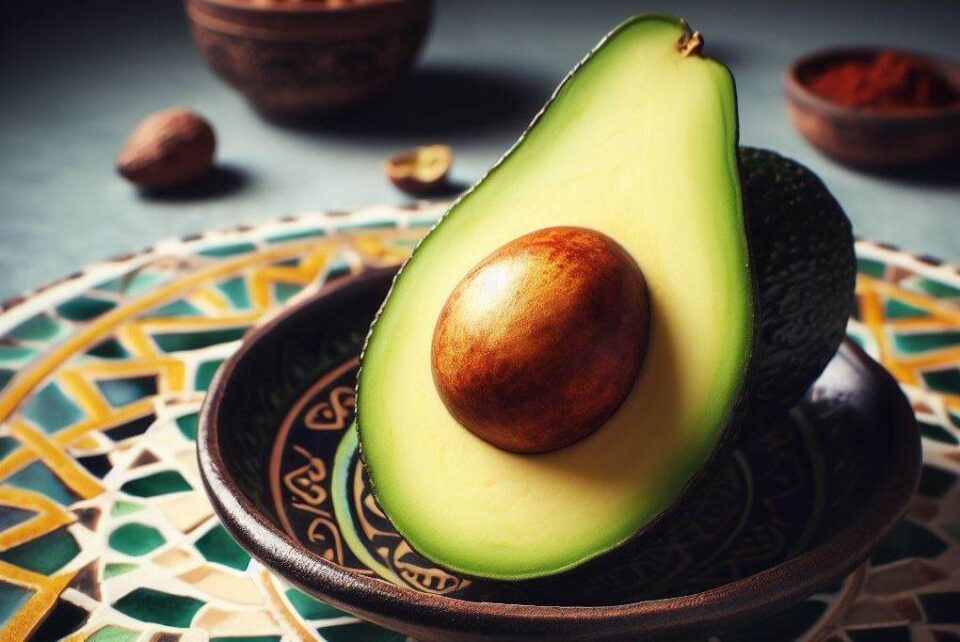The import of avocados in Morocco will hit a record high this year, despite having a well-developed local production sector, according to EastFruit. By the end of 2022, Morocco was the ninth largest exporter of avocados in the world, but in the first nine months of this year alone, it imported 13.5 thousand tons of the fruit – the highest amount in the last eight years!
 Avocados are not a traditional part of Moroccan cuisine, unlike dates or raisins. However, avocados have been becoming more popular around the world, and Morocco is no exception, adding them to local salads, smoothies and other dishes.
Avocados are not a traditional part of Moroccan cuisine, unlike dates or raisins. However, avocados have been becoming more popular around the world, and Morocco is no exception, adding them to local salads, smoothies and other dishes.
Just seven years ago, the country imported only 4 thousand tons of avocados. Since then, the volume of imports has more than tripled, and in the value terms, the record import of this year has already reached 8.5 million dollars.
“The main season for importing avocados in Morocco is from March to September, when there is hardly any local supply on the market. Therefore, the growth of avocado imports in the country is driven by a gradual extension of the consumption season. Moreover, the import of avocados in Morocco also depends on the performance of the tourism industry in the country. For instance, in 2023, the country will welcome a record number of tourists, which has already had a positive impact on the import of many products, including avocados,” explains Yevhen Kuzin, Fruit & Vegetable Market Analyst at EastFruit.
 The main supplier of avocados for Moroccan consumers is Peru. This country is the second largest exporter of avocados in the world, after Mexico. Peru has always played a key role in the deliveries to the Moroccan markets. Every year, Peru accounted for at least two-thirds of the total import of avocados in Morocco, and in the first 9 months of 2023, Peruvian products made up 78% of the total volume.
The main supplier of avocados for Moroccan consumers is Peru. This country is the second largest exporter of avocados in the world, after Mexico. Peru has always played a key role in the deliveries to the Moroccan markets. Every year, Peru accounted for at least two-thirds of the total import of avocados in Morocco, and in the first 9 months of 2023, Peruvian products made up 78% of the total volume.
Avocados from Spain (the 4th largest world exporter) are also imported to the Moroccan markets, but this country has lost some of its share. For example, in 2019, Spanish products had more than 30% of the Moroccan market, but this year their share was only 12%.
Smaller amounts of avocados come to the local markets from South Africa, Brazil, Kenya, and in 2023, products from eight countries of the world were imported to the Moroccan market.
Read also: Morocco leads the way in blueberry exports to Saudi Arabia, surpassing South Africa, Peru, Chile

Despite the challenges faced by producers, the export of avocados from Morocco is also growing. The country was the 12th largest exporter of avocados in the world in 2017, but since then sales to foreign markets have increased more than four times. Export indicators grew annually, and last year Morocco took the 9th place in the world ranking. In 2022, the North African country exported more than 55 thousand tons of avocados, and for 9 months of this year, deliveries have already surpassed 23 thousand tons.
And since avocados are the fastest growing segment of the global fruit and vegetable export, Moroccan producers are optimistic and expect a record harvest this season. On the other hand, the country is facing a serious shortage of water resources. The production of the fruit requires a lot of water, which is quite challenging in the current conditions (climate change, drought).
“The challenge of using water efficiently will continue to be a key issue for the avocado production industry in Morocco in the next few years. There are already serious calls in the country to restrict the water consumption of avocado producers, which could threaten the future of the export sector. However, on average, Morocco uses at least half as much water as Peru, Chile, Israel or South Africa to produce 1 kg of avocados. That means that compared to its competitors, Morocco is already more environmentally friendly in growing avocados. In the future, modern technologies that reduce water use, such as subsurface drip irrigation, water recycling technologies, etc., will also play an important role here. This will allow Morocco to conserve its natural resources and to keep a steady income from exporting a popular product in the world,” believes Yevhen Kuzin.




